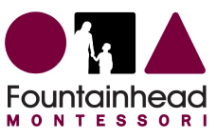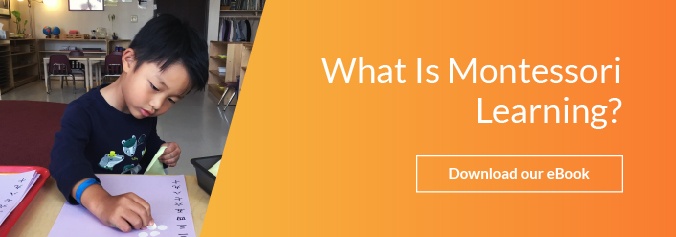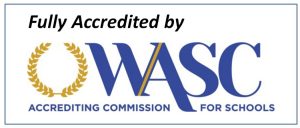There are a number of foundational skills that you expect your child to learn through Montessori education. You expect your student to learn math concepts, how to read, elements of the English language, etc. In fact, you would expect your child to learn these foundational skills no matter what school they attend. Montessori education will provide your child with a strong foundation in the basics, and much more. The Montessori philosophy of education is designed to prepare students for success in life. Success in life requires students to learn much more than the basics. Through a Montessori education your student will develop skills that are necessary for success in school, work, and life. One of the most important skills that your student will get to practice in the Montessori classroom is adaptability. Montessori education teaches adaptability by allowing students to work in a variety of situations, providing students with opportunities to work with others outside their age group, and providing a curriculum that is ever-changing.
Learn to work in a variety of situations
One hallmark of adaptability is being able to work in a variety of situations. It is impossible to always control one’s environment. It is a disservice to students to have them work in the same exact setting with the same conditions all the time because that is not the reality they will face in the future. Facing a variety of situations helps Montessori students develop adaptability. In the Montessori classroom, teachers give students the opportunity to work independently and in groups. Working independently helps students develop the ability to focus on a task for an extended period of time. Group work helps students learn to work in cooperation with others. A Montessori education can help your child develop adaptability by providing opportunities to work in a variety of situations.
Provide students with opportunities to work with more than just their age group
Another important part of developing adaptability is learning to work with a variety of people. In the Montessori classroom, students are in mixed-age classrooms. This design allows older students to learn how to work with younger students and vice versa. Learning to interact and cooperate with students outside of their direct age group is a great way for students to learn how to adapt to new situations.
Curriculum changes with changing ability
A Montessori education teaches adaptability by providing students with an ever-changing curriculum. There is no stagnation in the Montessori classroom because the curriculum changes as your student learns. When your student masters a concept, the teacher adjusts the curriculum to allow your child to continue moving forward. The design of the curriculum in the Montessori classroom requires students to continuously adapt as it changes.
If you want your child to learn adaptability, Montessori education is an excellent option. The way students work, interact with others, and go through the curriculum all present opportunities to develop adaptability. You can learn more about how a Montessori education can teach adaptability and other important skills by exploring the resources in the online parent library provided by Fountainhead Montessori School.












Let us know what you think about this post
Put your Comment Below: